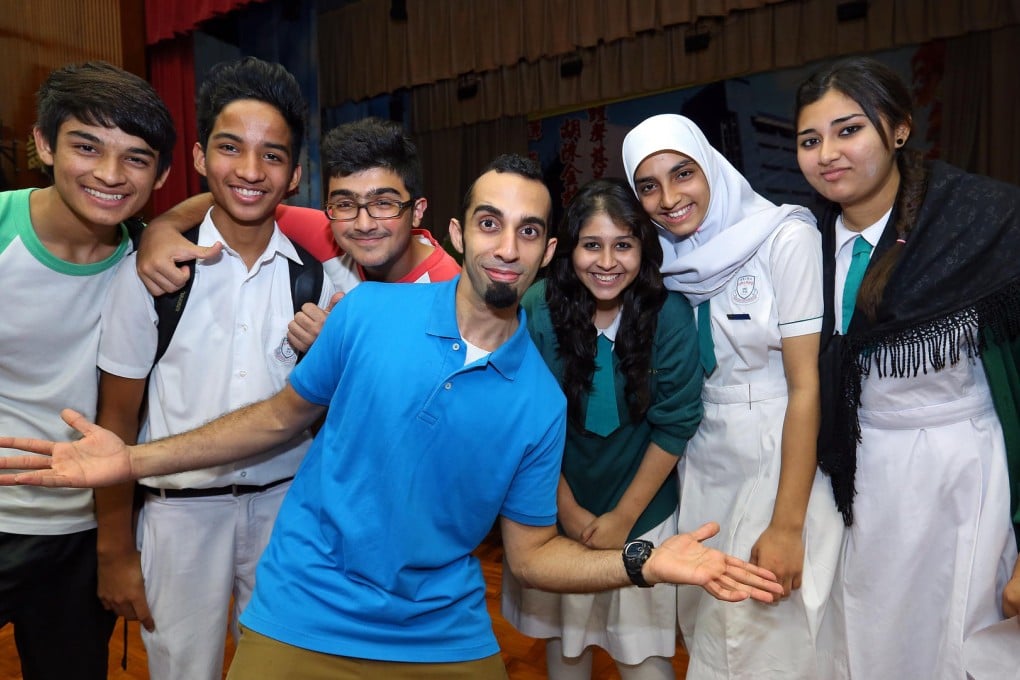Hong Kong comic Vivek Mahbubani uses multicultural identity to inspire kids
Stand-up comedian has, to his surprise, become an icon to young Hongkongers from ethnic minorities, and now spends much of his time giving talks to various groups

For a stand-up comedian, Vivek Mahbubani has quite an odd schedule. Aside from the evening gigs at clubs and private functions, he also appears on stages from Tung Chung to Tin Shui Wai, sometimes getting up at the crack of dawn to make 7am shows for audiences made up of six-year-olds.
That wasn't part of the plan when Mahbubani started doing stand-up eight years ago. He was carving a niche with his routines (in Cantonese as well as English), often about being an ethnic Indian in Hong Kong; along the way he became identified as an "icon" for ethnic minorities. Before long, invitations poured in for him to share his story with NGOs, schools and at "social integration" events.
He's still a little bemused by the idea.
"I'd never thought about integration of society. It's a joke," he says as he bolts down a bowl of Japanese beef curry at a Mong Kok food court. "I was just talking about stupid ideas like having English oral exams in Hong Kong, and people managed to see deep social meaning behind this."
Hong Kong-born and raised, the 32-year-old in many ways embodies the city's reputation for fast-paced living: he eats fast, walks fast and talks fast. But looking different made him a regular target of bigotry and discrimination. In school, classmates sometimes called him "alien" or "monkey". Even now, he is stopped by the police and customs officers because of his appearance.
Instead of stewing in frustration, Mahbubani turned his experiences into material for stand-up. His style of comedy, more good-natured irony than biting mockery, reminded audiences of the casual racism that members of ethnic minorities encounter even as it had them laughing out loud.
With his confident delivery, he has twice won the Hong Kong International Comedy Competition (in the Cantonese section in 2007 and in English the next year). An invitation to host an RTHK television series on ethnic minorities brought him greater exposure.